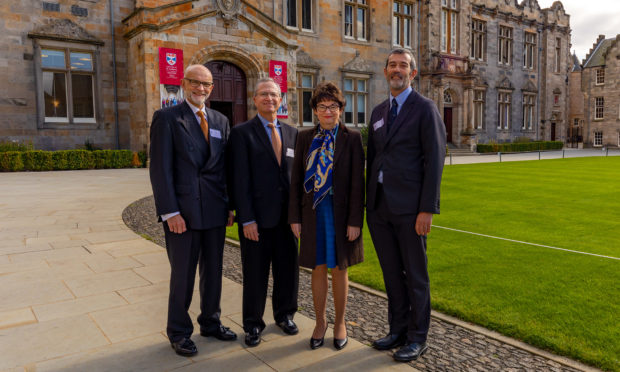A new centre which aims to boost diagnosis of cancer, cardiovascular disease, mental health and infection has been created at St Andrews University.
The Sir James Mackenzie Institute for Early Diagnosis Information involves specialists from Ireland, Germany, Canada, the Netherlands, America and sub-Saharan Africa.
Knowledge, skills and ideas will be shared in the centre, led by Professor Frank Sullivan of the university’s school of medicine, with the aim of diagnosing diseases to allow for earlier, and more successful treatment.
It will work with Scottish, UK and local NHS providers and members of the wider population
At present diseases are far more likely to be diagnosed earlier in affluent areas compared to Scotland’s most deprived communities.
A key feature will be collaboration between many disciplines, including medicine, biology, computer science, chemistry, geography and sustainable development, and physics and astronomy, as well as mathematics and statistics.
The institute is named after Scottish cardiologist, Sir James Mackenzie (1853 to 1925), who invented the original polygraph which revolutionised the diagnosis of heart problems and allowed him to identity heartbeat anomalies.
It was officially launched by university principal, Professor Sally Mapstone, 100 years after Mackenzie opened his own research institute at St Andrews.
Prof Mapstone said: “Mackenzie was a researcher who made bold decisions, who thought creatively around problems, and who worked in collaboration and across disciplines to find solutions to pressing issues.
“The university’s new institute of early diagnosis will draw upon Sir James’s example to inspire and inform our future.”
Sir James Mackenzie was born in Scone, studied medicine in Edinburgh and eventually left general practice to specialise in the study of cardiac arrhythmias – heartbeat conditions – moving in 1907 to become a consulting physician.
His success led to him being elected as a Fellow of the Royal Society in 1915 and later knighted.
He established the Mackenzie Institute of Clinical Research which worked closely with GPs to record symptoms and illnesses of patients and significantly aided scientific development within cardiology.









